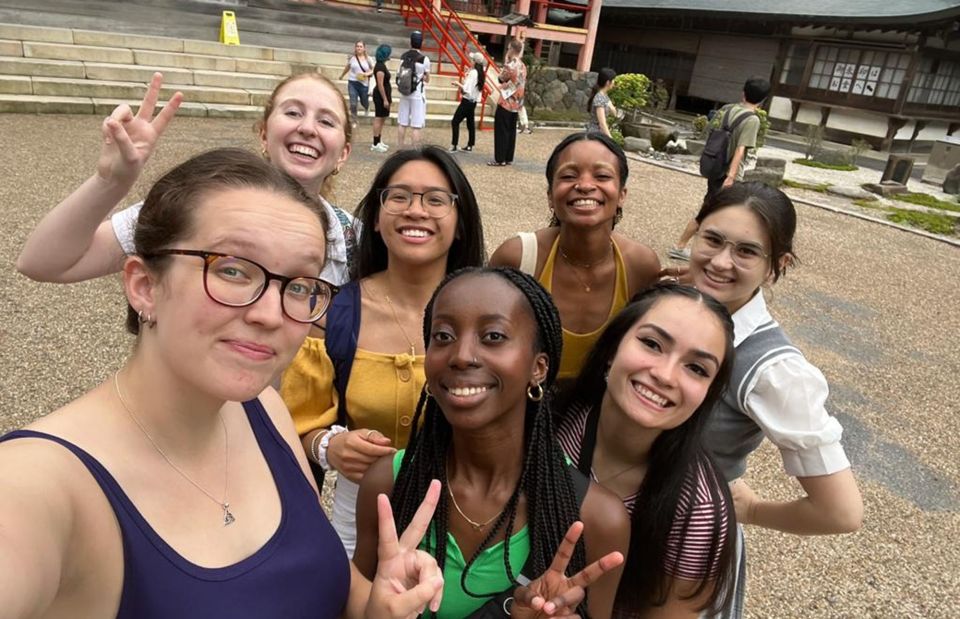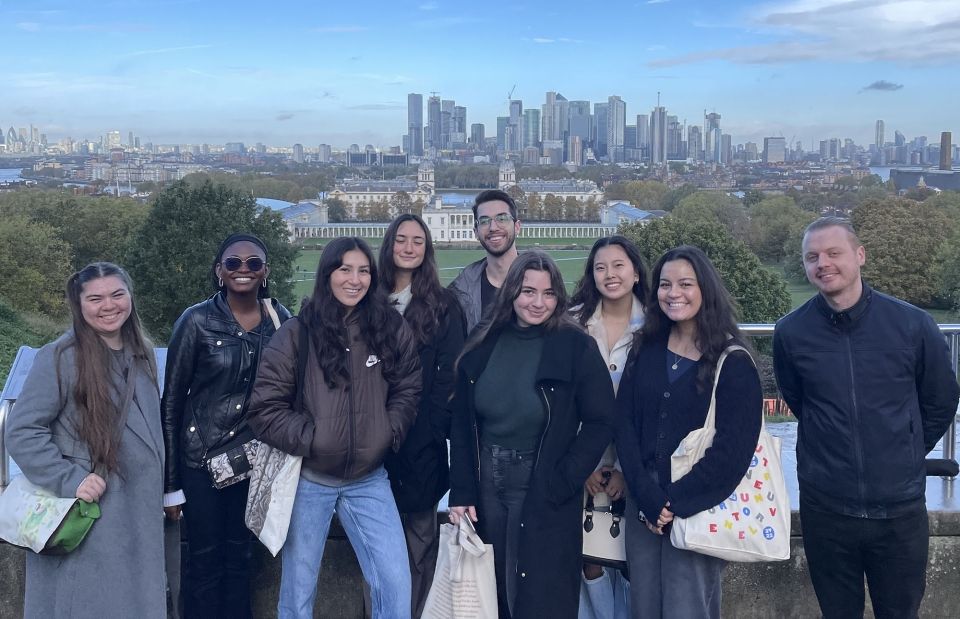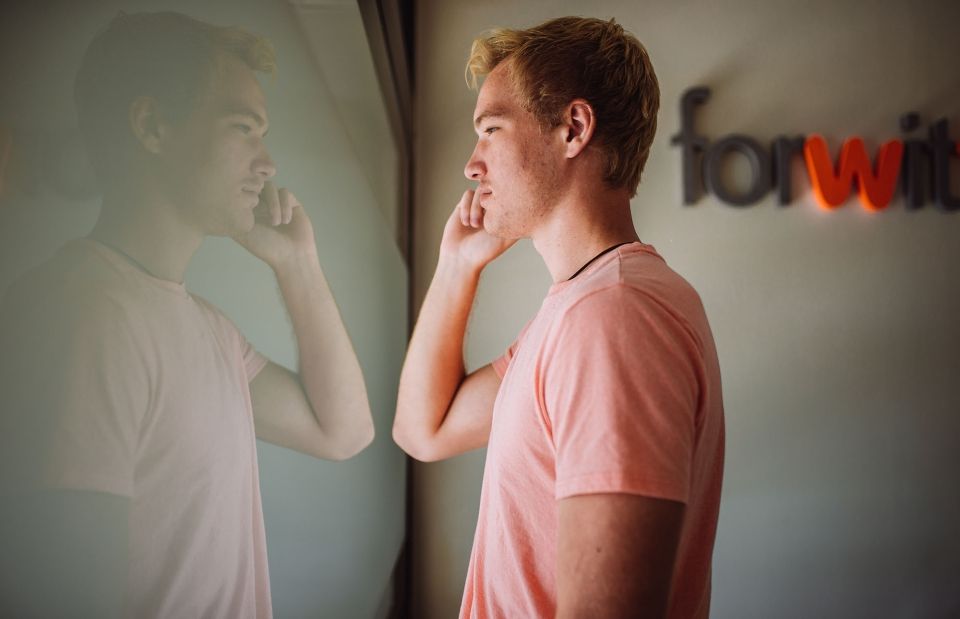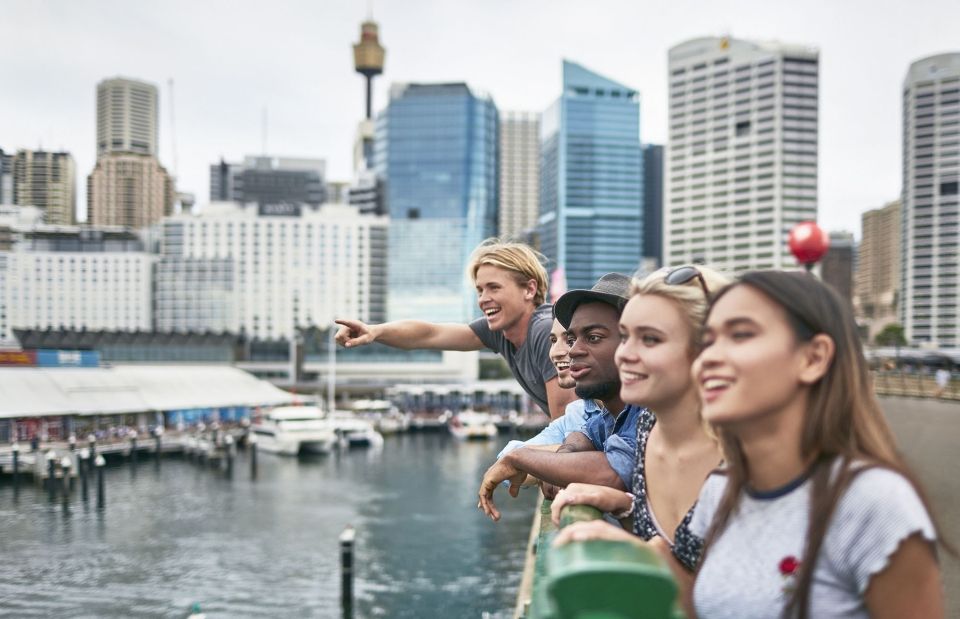What is Reverse Culture Shock? 3 Examples
You’ve probably heard of culture shock, the disorienting experience of being in a new place and having to adapt to foreign customs and expectations. But did you know that there is another related condition called reverse culture shock? This refers to feeling overwhelmed, confused, and even disappointed after returning home from an extended trip overseas, like a study abroad program.
Read More: What is Culture Shock? 4 Examples and Tips to Adjust
Fortunately, reverse culture shock is common and doesn’t usually last long. The concept may seem a little frightening, but we’re here to help you learn tips for identifying the phenomenon and mitigating its symptoms.
Read on as we discuss 3 reverse culture shock examples, what to do if you think you may be experiencing post-study abroad depression, and how to deal with the psychological effects of moving back home.
What is Reverse Culture Shock?
The reverse culture shock definition refers to the transitional period of returning home after spending a reasonable time away, such as after a long period of travel, an extended trip, or a study abroad program. Sometimes, a person can experience emotional and psychological difficulty when trying to assimilate back into life at home. This phenomenon is known as reverse culture shock, or “re-entry shock,” as you have to reacquaint yourself with an environment you’ve been away from for some time.
Some signs of reverse culture shock include:
- Feelings of isolation, and withdrawal from friends, family, and activities
- Experiencing uncertainty, frustration, and insecurity
- An overwhelming sensation of missing people and places from abroad
- Excessive sleepiness and apathy
It’s important to keep these signs in mind so you can seek support to help you through the transition. We know reverse culture shock can seem scary, but don’t worry! Reverse culture shock is commonly considered another word for returning home, and any psychological effects of moving back home are usually temporary and easily managed.

Reverse Culture Shock vs. Culture Shock
Culture shock refers to the state of disorientation while in an unfamiliar setting, such as on a study abroad trip in a foreign country. Just as this phenomenon is common, so is reverse culture shock, which happens, well, when the situation is reversed, and you’re coming back from an unfamiliar place or setting. In fact, many people don’t even think about reverse culture shock until they are experiencing the signs and symptoms of it at home.
But just as culture shock resolves as you ease into a routine and become more comfortable in a new environment, so does reverse culture shock, and we’ve got plenty of tips to help you diminish symptoms of the condition (keep reading!).
Read more: How Does Studying Abroad Help You Culturally? Tips to Prepare!
What Causes Reverse Culture Shock?
Reverse culture shock is a common experience for many people coming back from a long period of foreign travel. It’s normal and natural to feel a sense of isolation, sadness, or even disorientation when you return home from an exciting study abroad program, as you’re beginning to readapt to your surroundings.
Think of it like this: While away on your educational adventure, you likely had to adjust to unfamiliar surroundings, people, and maybe even languages or social situations. And once you adapted to your destination, you became comfortable there.
When you return home, you have to do the same thing, only in reverse! That’s reverse culture shock in a nutshell.
While reverse culture shock can sound scary, most signs of it resolve as you get back into a groove at home. And we’re here to help get you back on track!

Read More: Reverse Culture Shock Is Real
What Are Examples of Reverse Culture Shock?
Now that you know what the phenomenon is and how it presents, we’ll walk you through some reverse culture shock examples so you can be on the lookout for any signs without worry. Remember, it can be a normal part of transitioning back home!
1. Feeling restless in your home environment.
Have you ever returned home for winter or summer break and felt a little uneasy, like you’re not sure what to do now that your daily schedule has changed? Reverse culture shock is similar, with feelings of disorientation and restlessness as you navigate a familiar setting you haven’t spent too much time in recently.
You may feel like you want to get up and go do something, but you’re not sure what to do or where to go. If you notice you’re feeling extra anxious or restless after you’ve returned home from your study abroad program, you’re likely experiencing one of the most common reverse culture shock examples.
2. Being bored upon returning.
During your study abroad adventure, you were probably out and about seeing the sights, making lasting friendships, and indulging in delectable food. No doubt your routine changes when you arrive back home, and it is totally understandable that you might experience boredom as you adjust back to a simpler schedule.
The newness and excitement of an opportunity abroad can be hard to match when you are back home, and the ability to explore different surroundings isn’t quite the same. This scenario can lead to reverse culture shock, with increased feelings of confusion and disappointment.

3. Post-study abroad depression.
While reverse culture shock can be a normal part of the experience of coming back home, it is important to note that signs of this condition are temporary and resolve quickly. If you find that you don’t feel like yourself for more than a few weeks after returning home, you may be experiencing post-study abroad depression, which is another more extreme example of reverse culture shock.
Be sure to check in with a professional medical provider if you’re worried, or if it seems like your feelings of isolation are worsening. While reverse culture shock isn’t usually cause for concern, you’ll want to make sure you’re in contact with someone who can provide additional support if need be. It’s important to look out for yourself!
Read more: Why Study Abroad? Top 7 Benefits of Studying Abroad in 2025
How Do You Fix Reverse Culture Shock?
While there’s no specific cure for reverse culture shock, there are many ways you can support yourself through it and lessen some of the unpleasant feelings you may experience when you get back home. We’ve garnered a list of our top tips on how to deal with reverse culture shock to help you move through your transition back home more effortlessly.
Read on to learn our favorites!
Tip #1: Reflect on the person you've become and the knowledge you've gained.
When you go abroad, you’re diving into a dream destination that requires you to acclimate to a new culture and environment. You become part of something extraordinary, and that’s a BIG accomplishment! And it certainly doesn’t go unnoticed.
If you’re seeing signs of reverse culture shock once you return home, it can be extremely helpful to reflect on your achievements.
When in doubt – or if you’re noticing feelings of disorientation and disappointment starting to creep in – be sure to remind yourself of your strength and courage. You developed amazing character traits during your program, and your perseverance to enrich your education, learn new skills, and gain independence in another country is something to be proud of.
You are a changed person now, in all the best ways, so you’ll need to account for all the personal growth, global perspective, and worldly experience you brought back home with you. You’ve come a long way (literally), and it’s important to let yourself unfold the new you in a previous location. Self-celebration is the best way to combat the effects of reverse culture shock, and you certainly deserve it!
Read More: How to Put Study Abroad on Your Resume: 4 Steps
Tip #2: Connect with colleagues and friends you made abroad.
If you’re feeling overwhelmed and disoriented after your study abroad program, chances are you’re not alone. In fact, many people experience reverse culture shock to varying degrees, and returning home is the perfect time to reach out to a friend you met on your trip to talk about your favorite experiences while you were abroad.
Chatting about memories you made together and reminiscing about the places you went, or the things you did together will help you stay connected and feel supported. You can also talk about how you’re feeling now – we bet your pal will be able to relate!

Tip #3: Re-live your studies through photos and videos.
If you’re feeling extra anxious, it can be a good (and fun!) idea to look back at photos and videos of your adventures abroad. Seeing reminders of exciting moments can give you a jolt of energy and positivity, boosting your mood if you’re feeling low.
You may also become inspired to plan your next trip (perhaps another study abroad program?) and create something to look forward to – such as plans with a friend or scheduling another period of travel. This will keep you uplifted and keep reverse culture shock at bay.
Tip #4: Check in on yourself and seek help if you need it.
The psychological effects of moving back home can be challenging to navigate. Remember, you know yourself best. Always trust your gut and your intuition, and if you’re feeling like something is off, reach out to a friend, a family member, or a healthcare provider for support.
You may be experiencing more severe symptoms than those associated with reverse culture shock, and this may be an indication of post study abroad depression. Depression is serious and sometimes requires medical assessment, so be sure to check in on yourself frequently.
The good news is there are many easy and convenient ways to get help, and the sooner you reach out, the sooner you’ll start to feel better. And don’t forget about us, too! Feel free to reach out with any of your concerns – we’re here to support you always.
Tip #5: Re-familiarize yourself with your home environment.
To ward off reverse culture shock, it’s important to find things and hobbies you enjoy doing to keep you occupied while you transition back to your routine at home. Think about filling your schedule with things you’ve enjoyed in the past, such as coffee dates and meet-ups with friends you haven’t seen in a long time.
Take some time to discover interesting places in your house that make you feel comfortable and taken care of (new book nook, anyone?), and if the mood strikes, you can always explore a new-to-you restaurant, music venue, or other space in your city!
Staying busy can be a helpful way to settle back in. Plus, you’ll have some fun!

You Can Do This!
There’s no denying that re-entry after a study abroad program can come with some challenges, and reverse culture shock can add to those difficulties. But we know that with our tips and a little self-support, you’ll be prepared for whatever comes your way when you get back home.
Most importantly, be sure to give yourself time to adapt. Adjusting to any location (even if it’s familiar) takes time, just as it did when you first arrived at your study abroad destination. Let it. It’ll all work out just fine.
And lastly, take deep breaths! We know you got this. You’ll be feeling well, adjusted, and ready to explore again in no time.
Related Posts

Challenges of Studying Abroad You May Face (And How to Overcome Them)
Studying abroad is an adventure of a lifetime, yet like anything, it can come with some challenges and learning curves. After all, you are exploring a (likely) brand new country... keep reading

10 Best Cafes in Barcelona
By: Tara Shadravan I’ve been living in Barcelona for my fourth month now—I know because my 90 day metro pass just expired. I have established my favorite park, mastered the... keep reading

What Countries Celebrate Halloween?
Ever wondered how Halloween goes down in other parts of the world? Spoiler alert: it's not all about pumpkin carving and candy overload! From Mexico’s Día de los Muertos to... keep reading

